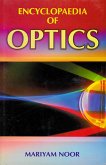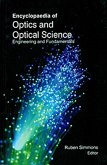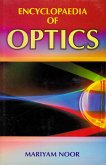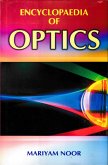At the dawn of the 20th century, few scientists, even in their wildest dreams, could have imagined the momentous revolution ahead. The discovery of atoms and particicles, the notion of space time, the equivalence of matter and energy, the wave nature of particles and the particle nature of light, new quantum phases of matter, semiconductors, superconductors, the expanding universe... All of these are part of the great scientific revolution of the past 100 years, a revolution that continues today, and whose consequences are rapidly transforming our world and impacting your life. Most optical phenomena can be accounted for using the classical electromagnetic description of light. Complete electromagnetic descriptions of light are, however, often difficult to apply in practice. Practical optics is usually done using simplified models. The most common of these, geometric optics, treats light as a collection of rays that travel in straight lines and bend when they pass through or reflect from surfaces. Physical optics is a more comprehensive model of light, which includes wave effects such as diffraction and interference that cannot be accounted for in geometric optics. Historically, the ray-based model of light was developed first, followed by the wave model of light. Progress in electromagnetic theory in the 19th century led to the discovery that light waves were in fact electromagnetic radiation. Some phenomena depend on the fact that light has both wave-like and particle-like properties. The present encyclopaedia has been designed to outline the basic and fundamental aspects of this subject to be understood in its right perspective. The encyclopaedia uses straight forward, less-technical jargon and manages to introduce each chapter with a basic concept, which ultimately evolves into a more specific detailed principle.
Dieser Download kann aus rechtlichen Gründen nur mit Rechnungsadresse in A, B, BG, CY, CZ, D, DK, EW, E, FIN, F, GR, HR, H, IRL, I, LT, L, LR, M, NL, PL, P, R, S, SLO, SK ausgeliefert werden.









